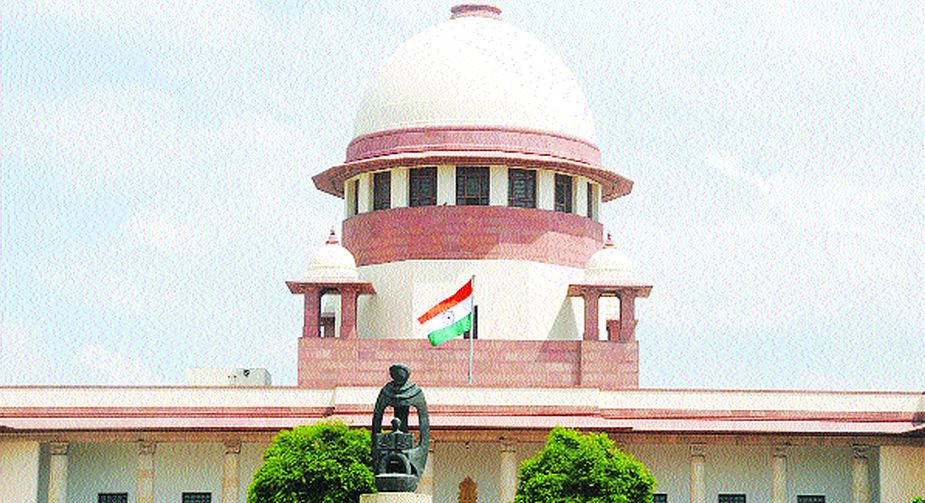The Supreme Court on Thursday sought response from 13 drought-affected states as to why they were not lifting enough food grain to made available at subsidised rates to the priority and vulnerable sections of the people in affected areas.
The bench of Justice Madan B. Lokur and Justice N.V. Ramana sought response from the 13 states as NGO Swaraj Abhiyan told the court that they were not lifting sufficient food grains as the central government was asking them to pay minimum support prices (MSP) beyond the 75 per cent limit under the National Food Security Act, 2013.
The National Food Security Act says that “the entitlements of the persons belonging to the eligible households … at subsidised prices shall extend up to seventy-five per cent of the rural population and up to fifty per cent. of the urban population.”
Telling the court that while it had ordered that all those affected by the drought conditions would be given food grains at subsidised rates as available to the people living below poverty line and vulnerable sections, the NGO said that this was not happening as states were not lifting required food grains due to the central government’s stand.
Counsel Prashant Bhushan told the bench that the court had earlier said that all those who don’t come under priority households or don’t have a ration card too would get food grains under the NFS Act.
Responding to the submission by Bhushan, Attorney General Mukul Rohatgi said: “Suppose a person (in drought-affected area) is a Zamindar, he will not get it (subsidised food grains).”
In the course of the hearing, Bhushan defended Swaraj Abhiyan knocking the doors of the top court raising the issues of general public interest including relief to drought-affected people saying that it was not for getting any political mileage or benefit or garnering votes.
Opposing the government’s plea during last hearing of the matter on October 21 that the PIL by the Swaraj Abhiyan can’t be entertained as they are now wandering into political field after graduating into a political party, he sought to clarify that what is sought to be registered as a political party was ‘Swaraj India’ and Swaraj Abhiyan would retain its identity and agitate for the issues of general public interest.
He told the bench that, as it is, ‘Swaraj India’ has not been registered by the Election Commission so far.
Contesting the stand taken by Bhushan, Rohatgi told the court that he wanted to show what this political party was doing in the public. “It has a political agenda to gain votes and to run down the ruling party at the Centre and in the State.”
Citing the instance of the Bharatiya Janata Party’s Bihar leader Sushil Modi approaching the court against Rashtriya Janata Dal leader Lalu Prasad in fodder scam, Bhushan said the question is whether it is a justiceable issue in public interest, if it concerns the people’s legal and fundamental rights.
“Merely because political party has a platform, it should not be stopped from doing it. Political parties should be encouraged for pursuing a PIL which is for public interest,” he contended.
Noting that the Election Commission has yet to decide on the application by Swaraj India to be registered as a political party, the bench observed: “The apprehension is that this will shift politics to the courts. We do not want this. We do not want politics to shift to the courts.”
It then adjourned the hearing and directed the listing of the matter on January 18.
